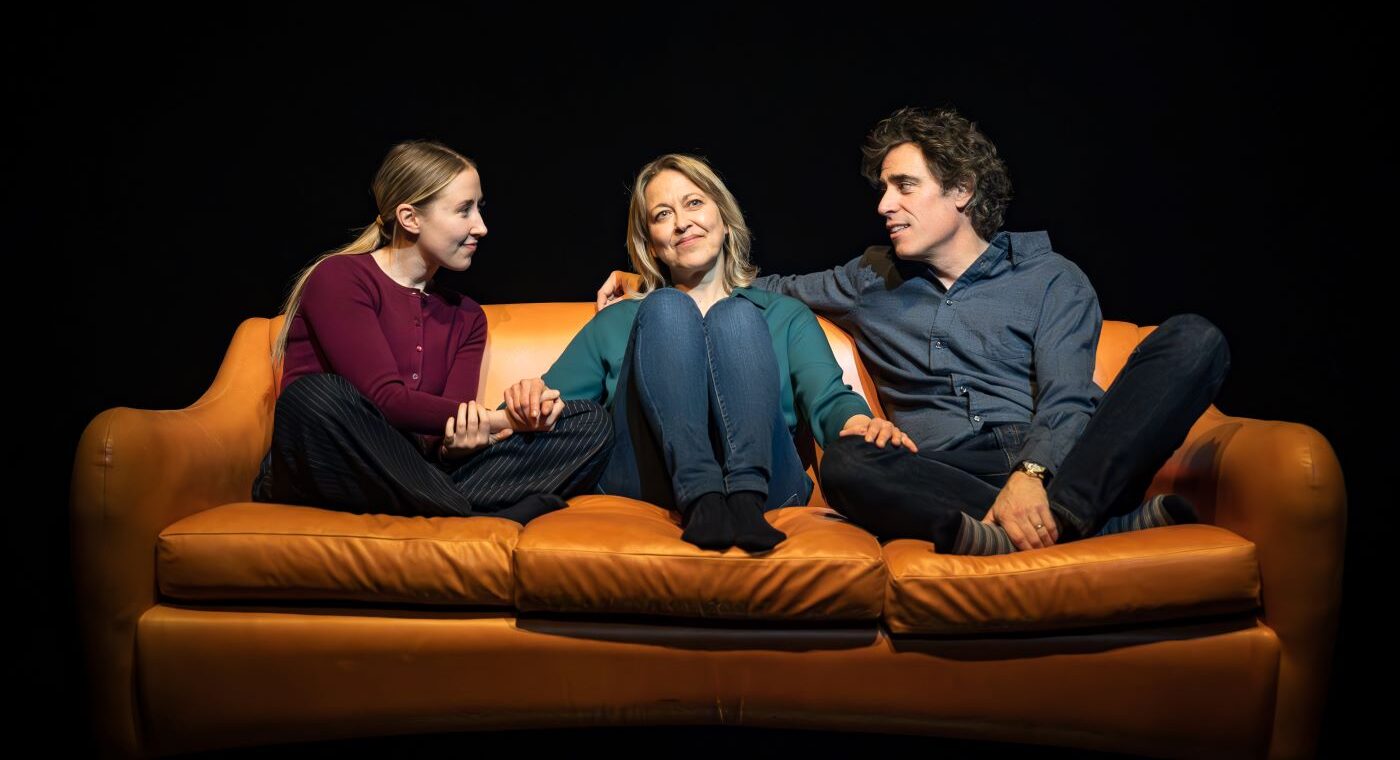Mike Bartlett’s Unicorn explores desire, intimacy, and sexual liberation, using the mythological unicorn as a symbol for shifting cultural perceptions of sexual freedom. Once a symbol of purity, the unicorn in Bartlett’s play becomes a metaphor for liberation, delving into how contemporary relationships navigate the balance between conventionality and sexual emancipation.
The play touches on love, infidelity, and unconventional relationships, blending symbolism with realism. Scene transitions reflect this evolution, starting with a semi-intimate conversation between two women at a bar—seated on separate chairs—before moving to shared moments on a bench and then a sofa, symbolising increased comfort and intimacy.
The dynamics between husband and wife, wife and young female, and between the young female and the husband are explored, culminating in the trio’s interactions.
At the core of the play is Polly (Nicola Walker), a woman disillusioned by the emotional and physical stagnation of her marriage to Nick (Stephen Mangan), who is complacent with their routine. Walker’s portrayal of Polly, a conservative woman seeking to explore her desires and redefine her understanding of love, is complemented by Erin Doherty’s flawless depiction of Kate, a young, liberated student. Together, they bring energy to the play’s early moments.
An early encounter between Polly and Nick on the family sofa reveals Polly’s sexual frustration, while Nick remains emotionally distant. This contrast highlights the growing disconnect between them: Polly yearns for new experiences, while Nick remains disengaged. Their relationship appears stagnant, and the monotony of their dynamic spills into the play’s pacing and dialogue, further distancing the audience emotionally.
The trio—Polly, Kate, and Nick—appear together on the family sofa multiple times, with one pivotal moment placing them on either side of a double bed, with Kate in the middle. This scene encapsulates the central conflict: can they transcend societal norms and embrace a liberated sexual experience? Yet, they seem unable to fully act on their desires.
Unicorn offers a fresh perspective on sexual freedom and infidelity, but its structure and pacing resemble the théâtre de conversation tradition, where dialogue is the main source of tension rather than physical action. The debate around crossing the boundaries of sexual inhibition remains narrow, and the repetitive dialogue hinders emotional engagement. The play stagnates, focusing on limited issues and failing to evolve.
Despite strong performances, particularly from Walker and Doherty, Unicorn never fully transcends its initial premise. The intellectual debate and emotional tension that could have propelled the narrative forward fall flat, leaving the characters and their struggles feeling underdeveloped. What begins as a compelling exploration of sexual freedom ultimately becomes an exercise in stagnation, unable to offer the emotional depth or provocative tension it promises.
The late 19th-century French Théâtre de Conversation tradition, where dialogue takes precedence over action, is a challenging format requiring dynamic conversations that reveal character depth. In this case, however, the dialogue falls flat, and the pacing drags.
By Mike Bartlett
Directed by James Macdonald
Cast includes: Nicola Walker; Stephen Mangan; Erin Doherty
Running time: 2 hours and 20 minutes including an interval.
Until 26 April 2025
Production photography: Marc Brenner

